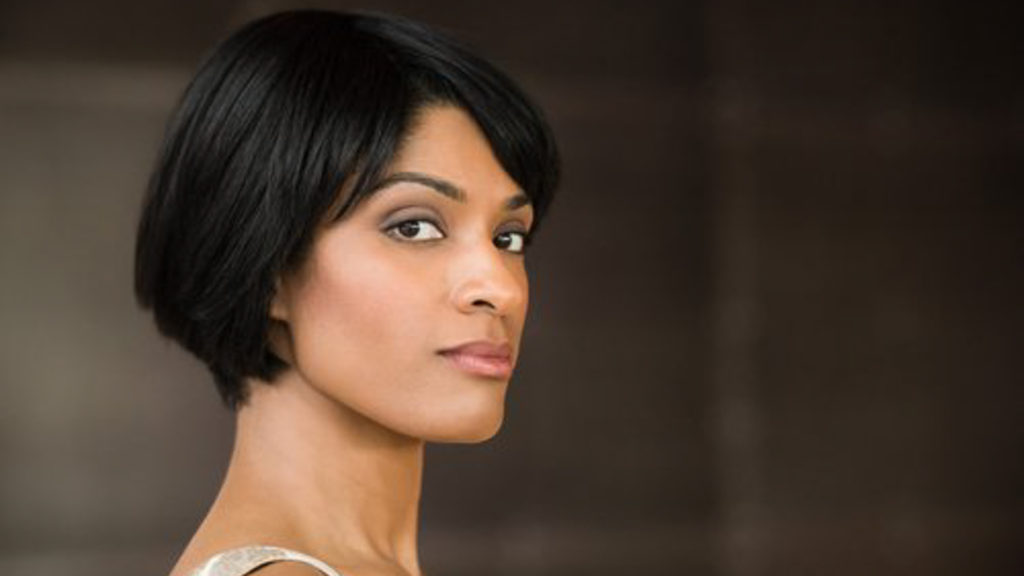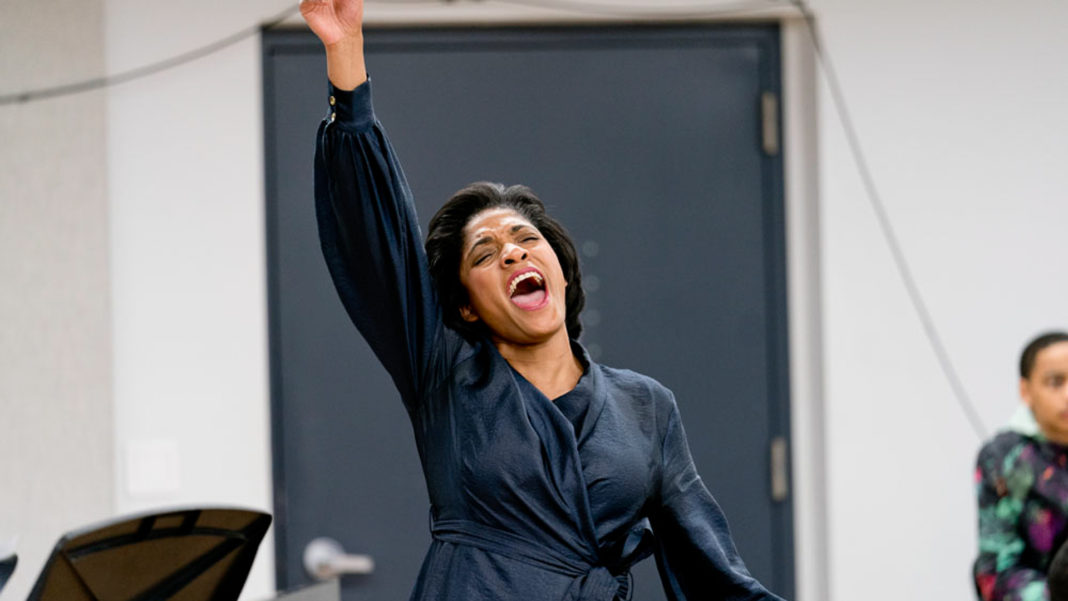“I use the motown project to biofeedback my relationship to what I really love about music – what I really love,” says mezzo-soprano Alicia Hall Moran about her show that is part of The Public Theater’s 2021 Under the Radar Festival.
the motown project (and it is purposely put in all lower-case letters), finds Moran combining many of the great songs from the Motown catalog with arias from operas by composers like Bizet, Mozart and Purcell. This might sound like a strange mash-up, but Moran has been working on various versions of this show since she debuted it in 2009. For the festival, she has created a film that goes beyond traditional performance and becomes a combination of performance and performance art. The end result is utterly compelling.
The complete show is now available for free viewing and we have it for you!
Moran appeared on Broadway in The Gershwins’ Porgy and Bess (and also sang the role of Bess on the national tour); she regularly performs with symphonies around the country; she has traveled internationally with Bill T. Jones and regularly collaborates with her husband, jazz pianist and composer Jason Moran.
I spoke by phone earlier this week with her and we discussed the project, her relationship to it and how ritual plays a part in her ability to navigate an ever-changing world.
These excerpts from our conversation have been edited for length and clarity.
How has your relationship to the motown project evolved since you first presented it over 11 years ago?
I feel so free in opera and in classical music. I feel like the composers of [Motown music] have proved their mettle to an extent that they even went through evolutions of music during my own lifetime and I’m only in the first part of my life. Motown has come through so many cycles of contemporary life. I’ve been here. I’ve seen it. To get the opportunity to present the music now, when I’m in a different place in my life, I guess I call it a vibrational overview of everything I care about. If I get to touch opera and Motown, that’s everything.
Me putting it with opera, sometimes you get laughs. I honor the story of my family in this country through these generations by presenting my classical music arm-in-arm with Motown, the other crown. It’s very intentional. That’s me in the music.
You’ve spoken before about the plane ride you had from Europe back to New York and that listening to a Motown channel influenced the project’s creation. How did that manifest itself for you?
I listened to Motown for six hours straight. I couldn’t sing anything out loud, but my larynx was approximating the music. It was changing shape in my throat. When I got off the plane, I knew I could sing all these notes. What feels good about Motown is what feels good about opera to me. There’s a very orgasmic part of Motown and it’s everywhere.

One highlight in the motown project is your pairing of “Signed, Sealed, Delivered” and the “Habañero” from Bizet’s Carmen. When did you have the “a ha!” moment that those two compositions could be paired so beautifully and hauntingly?
Love is haunting. I really just have a musical memory. When I’ve sung something before it just doesn’t leave me. I think it had to do with me being a trained classical singer. All that switching I do from style-to-style is the actual footpath of my change in techniques and the resonance between the phrases.
Is there a historical through-line from opera to Motown? If so, what does that allow you to express?
I’m sure that I know why I’m doing it. It just tells a story about money. How opera gets to the colonies, why we have the music of Europe here. Europeans came in search of a better life. Classical music reigns here as European imprints. Then when people salute jazz as the American invention that’s emancipation of the African colonists. Then it’s understanding of economic systems so that when you write a song it can also carry your name. You can have a bank account. With Motown we could own the record company. We can own the means of production, the promotions team and the marketing team. Those were all firsts. Berry Gordy integrated every one of those categories – provocatively and intentionally.
I want to ask you the same question I asked Jason last February. Given the state of the world right now, as an artist, a wife and mother of twin boys, where do you find the faith, if you do, that things will ultimately get better?
Ritual. Because there is a ritual there is something we can lean on and set up in better times. Everybody can choose to make something happen. We’re pretty strong and we know what we’re doing. And we can do this. That’s how everything works. That’s why I go back to Motown. It’s rock and it’s classical music. Everyone’s still alive, but in 300 years everybody will still be singing it.
Photo: Alicia Hall Moran rehearsing Two Wings at Carnegie Hall (Photo ©John Rogers/Courtesy AliciaHallMoran.com)
Update: This post has been updated with “the motown project” in its entirety. Thank you Alicia Hall Moran for making the link available to Cultural Attaché












Hi! After the end of the Festival, Joe’s Pub uploaded the entire thing to live online on YouTube. Thank you for the thoughtful article and attention to independent artists.